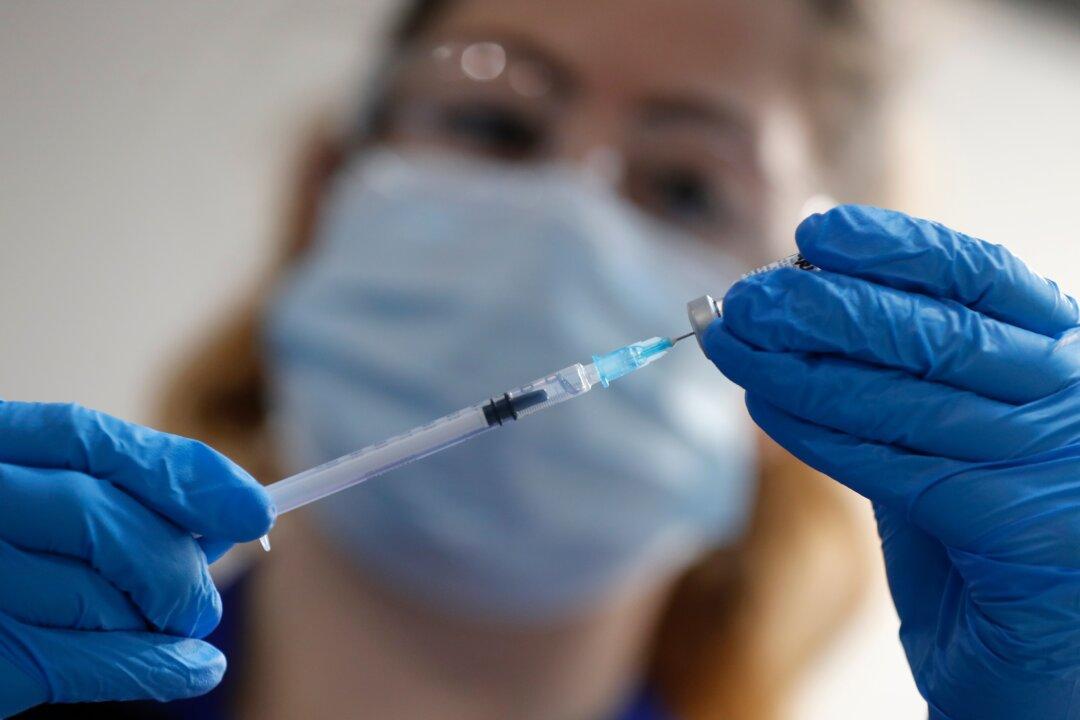Two doses of CCP (Chinese Communist Party) virus vaccines are almost as effective against the Indian variant as they are against the UK variant, England’s health officials have said.
But the protection from the first doses against the Indian variant has been “notably lower” than they are against the UK variant, they said.





